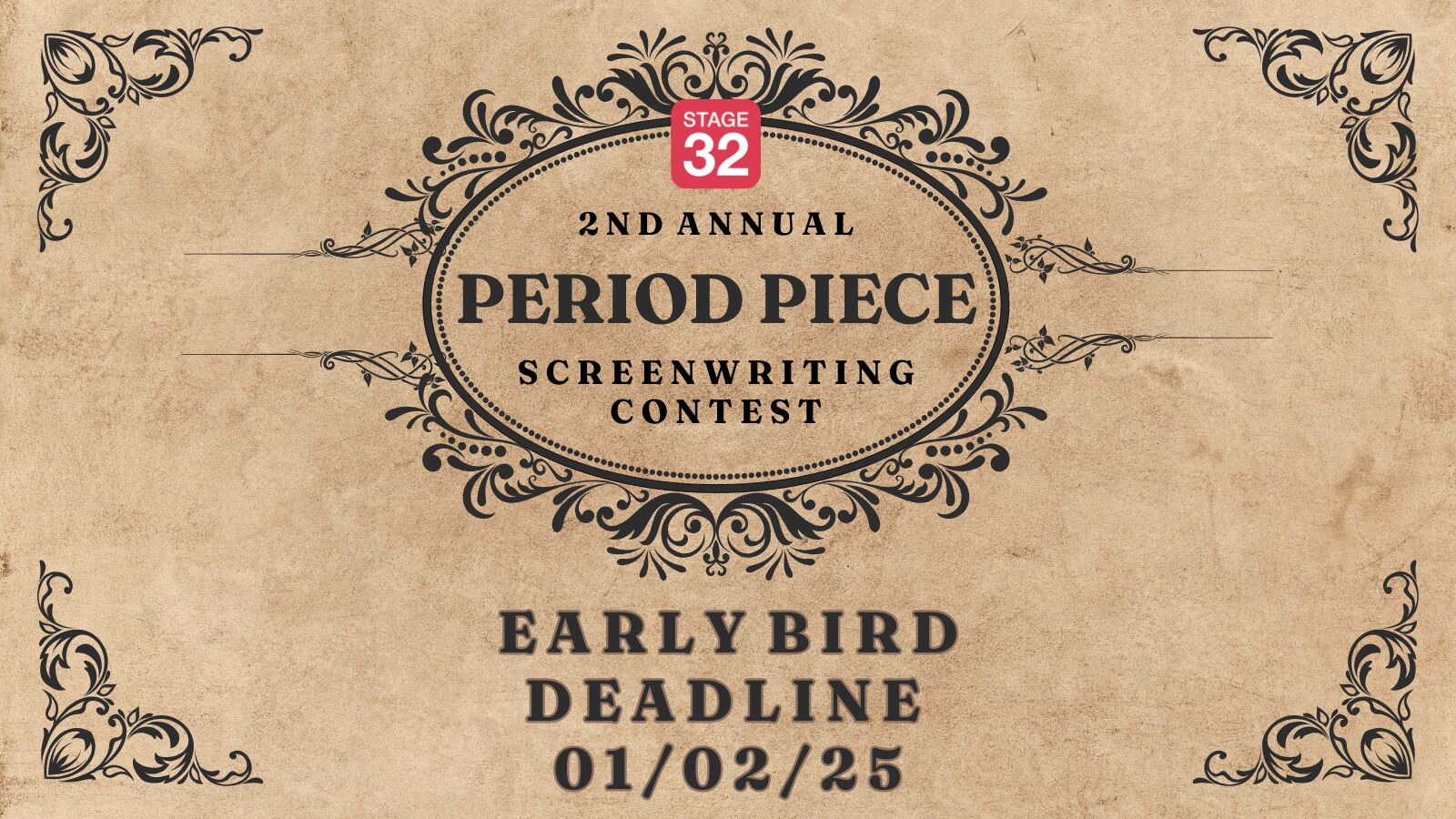Hey folks - I just had an interesting interaction that I think warrants a post for the community. A writer wrote to me and asked for recommendations for a manager to reach their script. I made a recommendation and it turns out that writer had taken a class with this manager 4-5 years ago. They did not want to reach out again - and said that their writing had improved so much they didn't want to go back to the manager now.
And that really surprised me. But I see this a lot from writers in the community who I think do themselves a disservice by only connecting with a professional once and never again. This is a relationship business as much as (if not more so) it is a business based on talent. So I encourage writers to get multiple consultations with the same professional and take classes and pitch and interact as much as possible. Showing your writing has improved is a benefit and asset not something to shy away from. Don't leave a trail of executives behind you as you move forward, keep cultivating those relationships.




3 people like this
Great tips, Jason Mirch! Yeah, this is a relationship business. Not bragging, but I get most of my ghostwriting jobs from the same producer who I built a relationship with over the years.
Your post reminds me of a discussion on Stage 32 about maintaining relationships. We can maintain relationships by checking on people, supporting their projects, sending "thank you" messages, interacting with them in the Lounges, getting multiple consultations with the same professional like you said, joining the live events in the Writers' Room, Stage 32's in-person Meetups, etc.
5 people like this
No disrespect but 100% disagree with this plan. We are the talent. As soon as we cowtow to supposedly partners, we lose our leverage. Enough of sucking up for reads & meetings. Let's gain back Writer's power by saying no. Pay the same person multiple consulations? No, I cannot sign off on that. That is not a natural partnership. That is a service when money exchanges hands.
We are the talent. Pay us for our time & believe in our future earnings. Or not. That's fine too.
1 person likes this
Hi Jason. Glad that you are back. I'm going to agree with Dan.
1 person likes this
If they wanted to work with you they will. They’ll show a genuine interest in you and your writing. This is a very passive aggressive industry where there’s subtext in just about everything. Unless they say “this is great. Let’s work together” assume there’s no interest and move on. And even then, be weary unless there’s paperwork afterwards
1 person likes this
I know it’s a relationship business. Bringing value to the table, it’s such a huge key.
6 people like this
Nah to the naysayers. Jason is very much right in this. As a writer, there is nothing that will fire up an exec more than showing real growth in your writing. I've seen it happen in real time plenty of times. It's truly energizing and invigorates execs because it means maybe their notes helped, the writers were able to take their feedback, use it, and they still have the juice/insights/etc. to help writers improve. And if a writer can take a bad script to a good script, maybe they too can make progress in what they're doing. It's all around exciting to everyone when this happens. I know to a lot of people, execs are nameless, faceless ghouls, but they are people also and when they can't get their projects rolling or move forward as much as they want, they get doubts too about their mojo, just like writers. Anything to assuage those doubts and refill the gas tank is a boon. Of course, it's not going to happen every time, but when it happens, when a writer brings a script they've finally unlocked and taken from bad execution to great execution, it's such a massive win for all parties involved.
3 people like this
stop the presses- Jason Effin Mirch???? God are you a sight for sore eyes. Lovely to see you.
3 people like this
Agree, Laurie. So happy you're back, Jason.
2 people like this
Pat Alexander positivity is good. But being overly positive/optimistic is a disservice to writers. Realistically positive is the best option in my opinion. It’s not naysaying. I think honesty/transparency has such an aversion that it’s labeled as negative lol.
Pat Alexander imagine that, execs actually doing their jobs.
1 person likes this
I couldn't agree more, Jason Mirch! You have to stay in someone's orbit!
2 people like this
Hi Jason Mirch good to see you again. I will always give people a second chance in business. However, I don’t prove I have grown to people I pay. They do what I ask, or they can choose to not take my money.
A manager takes my money. They are not a collaborator. The creative process can exist without them.
Producers, executives, studios etc are my customers. These people do not have to prove themselves to me, I have to prove myself to them, as I take their money.
Sorry Jason, we have to defend our self-respect. Writers have been trained to think we are worthless. That we, have to beg for everything we get, like Oliver asking for “more”. Even the foolishness of referring to our art is a “blueprint” devalues what we do.
I don’t have a rep. Because as a business person I know I would not have enough (available time) for them to leverage and make themselves an income.
They have contacts. They are monetising their contacts. Remember the time when all the reps were sacked? The WGA did a survey, 70% of work is generated without the effort or involvement of a rep. Yet they still get paid for every dollar we make. Even when they are not involved in generating that money.
Just to clarify, I am referring to people we pay, not collaborators. Some managers give notes, good for them. They are just trying to make something more valuable so they up their share. They are not a collaborator in the creation of my films.
2 people like this
Great advice, Jason. Thanks!
2 people like this
"...their writing had improved so much they didn't want to go back to the manager now.""
I am still trying to wrap my head around this thought process. So long as the manager didn't say, "never show your face in my office again," why would you not want to keep updating them on new things in your career?
I have taught "The Business of Acting" for a few college programs, and one of the things I always teach them is that just because someone isn't interested in you now, doesn't mean they won't be later. Keep them up to date on your career. Just keep it succinct, professional, and have a reason for reaching out (wanted to share my new script, my short just one best screenplay at whatever film festival) and not just a general check in.
2 people like this
Good stuff. Thanks, Jason.
5 people like this
Great advice, Jason Mirch. This is a relationship business first and foremost and cultivating relationships over time is one major key to success. I also agree with Tom that having meaningful updates and nuggets to share is smart and use those moments whenever you can. I don't think you can ever outgrow relationships with good people in the industry.
4 people like this
Absolutely Jason Mirch! Seeking out mentors and relationships is the key to success in this business. If you're in it for the long haul you will encounter the same people throughout your career. That's an asset!
3 people like this
I couldn’t agree more Jason Mirch . Consistency is key and remember - execs want to know that you are improving!
5 people like this
Don't know if this is apropos...but on Feb 20 I received an email from S32 claiming one Colleen Marshall wanted to meet me to talk about one of my scripts. I emailed her immediately, saying I was excited about that possibility. Wellllll......three months later, I'm still waiting for that meeting or even an acknowledgement of any sort. The point is, at this level, the "relationship" is always one -sided. If the individual with all the power decides they don't want that relationship, it's not going to happen.
1 person likes this
This writer took a class, not a meeting, a relationship that was built over some exchange of information. In that interaction the writer formed the opinion that they couldn’t, or would not, work well with this person.
That is fairly simple to understand.
Do I trust this person to do the best for me? If no. Don’t work with them.
This writer did not have faith/trust/confidence in this person. I would have found the second question interesting. “why do you feel this way?”.